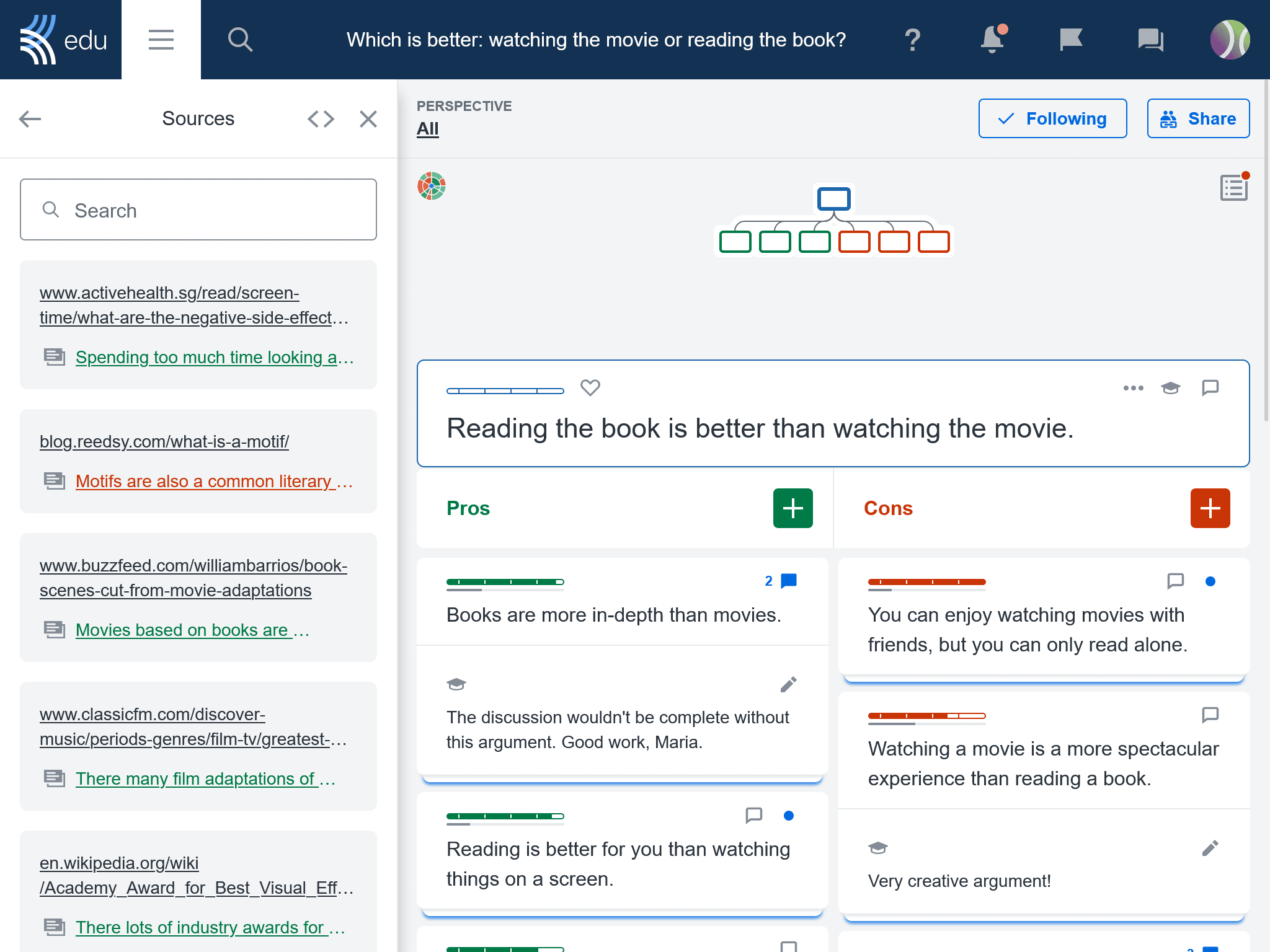The UK is a world leader in the use of technology in the classroom. For all those schools who are embracing edtech, Kialo Edu is perfect for enhancing teaching and learning. As a free, purpose-built online discussion platform, it is designed to train students’ critical thinking skills through engaging them in interactive discussions. Not only that, but the platform also offers innovative ways to meet English standards at key stages 2 (Years 5 and 6), 3, and 4 of the National Curriculum for England!
Quick links to curriculum alignment tables:
Let’s examine how activities on Kialo Edu align with National Curriculum standards for spoken language, writing, grammar and vocabulary.
Composing claims
Writing and editing a claim on Kialo Edu couldn’t be easier — and yet this activity meets many curriculum standards for English! Giving each discussion a clear purpose and audience means students can practice selecting and using the appropriate grammar and vocabulary to write clear and concise claims and achieve the aims of the discussion.
As students move through the key stages, they can apply their knowledge of formal language and Standard English to improve their claims. And of course, students need to pay attention to perfecting their spelling and punctuation too! The result is that students can meet a plethora of standards in the writing and grammar and vocabulary strands by composing just a handful of thoughtful claims.
Using the visual argument-mapping structure and sources

Every claim that students write in a Kialo Edu discussion contributes to an argument map displaying lines of argumentation. Students will quickly learn that the strongest arguments are those supported by sources.
At key stage 2, they can meet writing standards by drawing on reading and research to support claims, for example through the use of a quotation from a class novel. By key stage 4, as students become more adept at researching sources, they can progress to citing evidence, details, and quotations effectively and pertinently.
As students support claims with evidence, sources are collated in a handy sidebar, making it easy to refer back to these during discussions. Finding and using sources is also the perfect opportunity to develop students’ digital literacy skills, meaning students can meet their computing standards too!
Creating an essay or presentation outline
Kialo Edu’s argument map also works as a great essay or presentation outline, meaning students can hit those planning standards! Through representing ideas with claims, students can plan out their arguments for a formal spoken presentation or debate, or they can use their completed argument map as a planning framework for a discussion text, argumentative essay, or viewpoint article.
The simple discussion tree format of an argument map supports students in the effective selection of content and logical organization of ideas at the planning stage. The digital format also makes editing essay and presentation plans a breeze! Teachers can quickly give feedback, and students can easily adapt plans to improve coherence and effectiveness. Plus, the digital record means no more lost essay plans!
Interacting with others and / or others’ work

The digital nature of Kialo Edu also makes it perfect for collaborative conversations! Students can practice several of the skills within the spoken language strand, even as they read and write. In fact, the written format benefits those students who may struggle to make spontaneous verbal contributions in discussions, allowing them to pre-plan their ideas.
Students can initiate and respond to claims, build on others’ viewpoints, and question and challenge each other courteously. Through using voting and comments, students can consider and evaluate content, viewpoints, evidence, and aspects of presentation. Teachers can easily pass ownership of discussions to students, allowing them to lead and manage conversations.
With so many different ways to achieve curriculum standards on Kialo Edu, our discussions can become an integral part of the teaching and learning process in your classroom. Even better, digital discussions are perfect for building a bank of assessment evidence. So, why not select a debate topic from our library and get started today?
